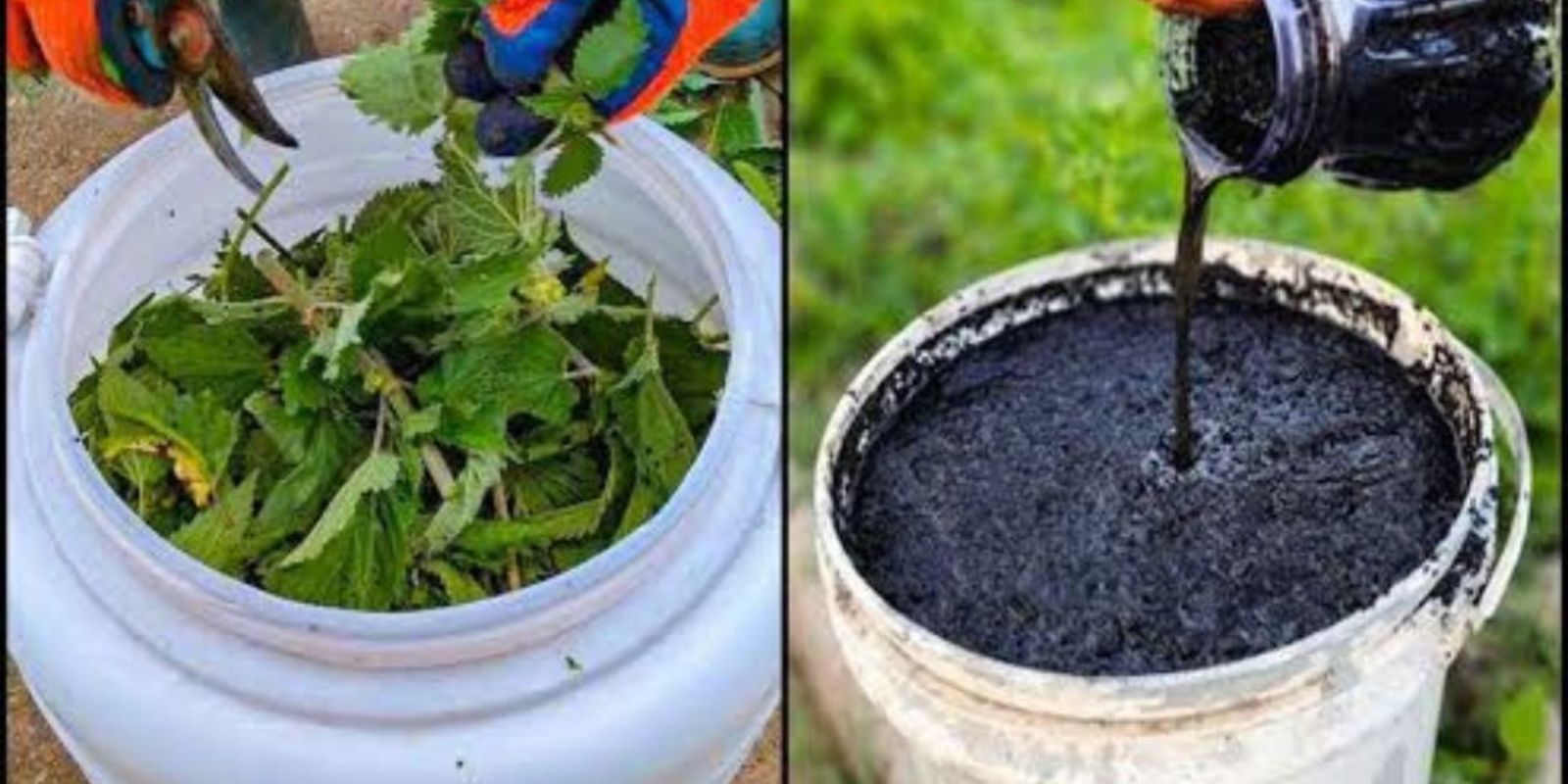Gardeners worldwide are increasingly turning to sustainable and eco-friendly solutions to nurture their plants. Among these, nettle fertilizer syrup stands out as a natural, nutrient-rich alternative to synthetic fertilizers. Packed with nitrogen, potassium, and iron, this DIY garden remedy promotes vigorous growth, strengthens plant immunity, and enhances soil health—all while being budget-friendly.
In this article, we’ll explore why nettle fertilizer is a must-have for gardeners, how to prepare it step-by-step, and how to use it effectively to achieve a lush, thriving garden.
Why Use Nettle Fertilizer Syrup?
Nettle fertilizer is made from stinging nettles (Urtica dioica), a common plant often regarded as a weed. However, these humble plants are a treasure trove of nutrients essential for plant growth. Here’s why nettle fertilizer deserves a place in your garden routine:
- Rich in Essential Nutrients:
- Nitrogen supports healthy foliage and rapid plant growth.
- Potassium enhances flower and fruit development.
- Iron prevents yellowing leaves and promotes chlorophyll production.
- Improves Soil Health:
The fermentation process in nettle syrup releases compounds that enrich soil microbial activity, making nutrients more accessible to plants. - Strengthens Plant Immunity:
Regular application helps plants resist pests and diseases, reducing the need for chemical interventions. - Eco-Friendly and Cost-Effective:
Nettle fertilizer is a zero-waste solution that recycles garden materials and eliminates the need for synthetic fertilizers.
How to Make Nettle Fertilizer Syrup
Making nettle fertilizer syrup is simple and requires minimal ingredients and equipment. Follow these steps:
Step 1: Gather Materials
- Fresh Nettles: Collect approximately 1 kg of fresh nettles. Use gloves to avoid stings, and harvest before the plants flower for maximum nutrient content.
- Bucket: A 10-liter bucket works well for fermentation.
- Water: Use 10 liters of water to cover the nettles.
Step 2: Prepare the Mixture
- Chop the nettles into smaller pieces to increase surface area and speed up fermentation.
- Place the chopped nettles in the bucket and fill it with water.
Step 3: Let It Ferment
- Cover the bucket loosely to allow air circulation while keeping pests out.
- Place the bucket in a warm, shaded location.
- Stir the mixture daily to release trapped gases and speed up decomposition.
- After 1–2 weeks, the mixture will turn dark, and bubbling will stop, indicating fermentation is complete.
Step 4: Filter and Store
- Strain the mixture using a fine mesh or cloth to remove nettle residues.
- Store the liquid fertilizer in sealed containers or bottles. It can be stored for several months in a cool, dark place.
How to Use Nettle Fertilizer Syrup
Once your nettle fertilizer is ready, it can be applied in two main ways: soil feeding and foliar feeding.
1. Soil Feeding
- Dilution Ratio: Mix 1 part nettle fertilizer syrup with 10 parts water.
- Application: Water the base of your plants every 2–4 weeks.
- Best For: Heavy-feeding plants like tomatoes, cucumbers, zucchini, peppers, and squash.
2. Foliar Feeding
- Dilution Ratio: Mix 1 part nettle fertilizer syrup with 20 parts water.
- Application: Use a spray bottle to mist the diluted fertilizer onto leaves. Apply early in the morning or late in the evening to avoid sunburn.
- Best For: Boosting leaf health and providing nutrients directly to foliage.
Tips for Success
- Avoid Flowering Nettles: Harvest nettles before they flower, as flowering plants produce less effective fertilizer.
- Dilute Properly: Always dilute the syrup before use to avoid “burning” plants with excess nutrients.
- Monitor Odor: The fermentation process can produce a strong smell. Place the bucket away from living areas or add a handful of rock dust to neutralize the odor.
- Test Before Use: Apply the diluted fertilizer to a small area first to ensure your plants respond positively.
Benefits of Using Nettle Fertilizer
Regular use of nettle fertilizer offers a range of benefits that will transform your garden into a thriving, self-sustaining ecosystem:
- Boosts Plant Growth:
The high nitrogen content promotes rapid, robust growth in leafy vegetables and ornamental plants. - Enhances Leaf Health:
Plants treated with nettle fertilizer develop lush, vibrant foliage, thanks to its iron-rich composition. - Encourages Flowering and Fruiting:
Potassium in the fertilizer supports the production of flowers and fruits, leading to better yields. - Strengthens Against Pests and Diseases:
Nettle fertilizer fortifies plants, making them less susceptible to common garden pests like aphids and fungal infections. - Improves Soil Fertility:
The organic compounds in nettle fertilizer boost soil microbial activity, enhancing nutrient availability and soil structure.
Eco-Friendly Gardening with Nettle Fertilizer
By incorporating nettle fertilizer into your gardening routine, you contribute to a more sustainable and eco-conscious approach to plant care. This natural solution reduces reliance on synthetic fertilizers, minimizes waste, and leverages the power of nature to nourish your plants.
A Simple Solution for Every Gardener
Whether you’re growing vegetables, fruits, or ornamental plants, nettle fertilizer syrup is an easy-to-make and highly effective way to ensure your garden thrives. With just a few simple steps, you can create a powerful, all-natural plant booster that supports healthy growth, vibrant blooms, and bountiful harvests.
Why not give it a try? Share your experience with nettle fertilizer in the comments and inspire fellow gardeners to embrace this eco-friendly solution! 🌱

